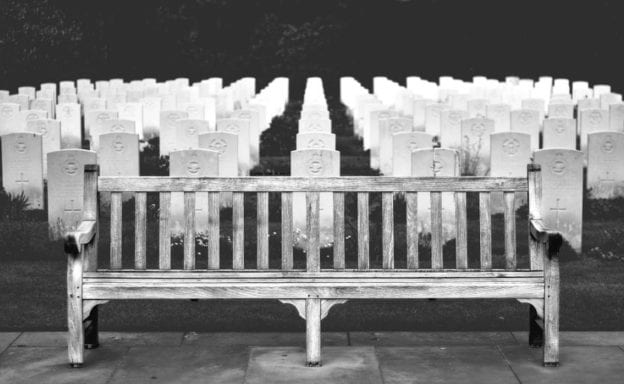Grief resources are among the cremation services offered in Greenbelt, MD. To understand complicated grief, it’s important to distinguish grief, mourning, and bereavement. These words are often used interchangeably, but they are distinct from each other in important ways.
Bereavement describes the experience of having a loved one die. Grief is the psychological and emotional response to bereavement. Grief includes the combination of intense sorrow and longing that is accompanied by thoughts, memories, and images of the loved one who died. Mourning is the period of time where grief is processed and adjustment is made to life forward without a loved one.
Although grief itself never dies, it does change over time. The acuteness and all-consuming nature of it that occurs immediately after a loved one dies eventually changes into a knowledge of loss, that from time to time can be temporarily sparked by a memory, a life moment, or a random thing that reminds us of our loved one.
Complicated grief is different from normal grief in that the intensity and all-consuming nature of the grief doesn’t abate over time. People with complicated grief get stuck in a pattern of thinking about the circumstances of the death and worry about its consequences, which evokes intense emotional upheaval.
Approximately 3 million people die in the United States every year. For each of those people who die, it is estimated that they leave at least five close attachments behind. So, at any given time during a year, almost 15 million Americans are bereaved, grieving, and mourning. However, around 1 million of those Americans are experiencing complicated grief.
For all the close attachments of a loved one who has died, a period of disruption and emotional intensity follows as they process the death and accept the death.
The death of a loved one is one of the most stressful events that a human can experience. Not only is the stress related to the actual loss of someone they loved, but there can be other stressors such as finances, legal issues, asset distributions, and moves that can add even more stress.
This stress requires a lot of external support and a bevy of coping skills to be able to handle, manage, and get through. If the people grieving had complex relationships with the loved one who died or they had unresolved issues, their coping skills may not be as robust as someone else.
Without adequate support and coping skills, a person may get entangled in grief and not be able to break the cycle of intense and acutely painful emotions that grief brings. This is complicated grief.
It’s important to understand that grief, even complicated grief, is not the same thing as depression. Depression may occur as a result of grief, especially complicated grief, but depression is a neurological disorder that can occur independently of grief, which is not a neurological disorder, but an appropriate emotional response to loss.
Complicated grief lasts for an extended period of time – several years, in the most severe instances – and it inevitably interferes with the person’s ability to function normally and to move forward in finding purpose and meaning in life.
Professional grief counseling can help people who are experiencing complicated grief. These trained professionals can provide a way out of complicated grief and into a new life that hasn’t forgotten the loss, but is no longer trapped in the intensity of the initial grieving processor.
If you need information about grief resources and other cremation services in Greenbelt, MD, you can talk with our expert staff at Donald V. Borgwardt Funeral Home, P.A. You can drop by our funeral home at 4400 Powder Mill Rd., Beltsville, MD, 20705, or you can contact us today at (301) 937-1707.





